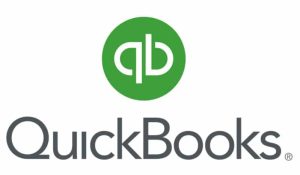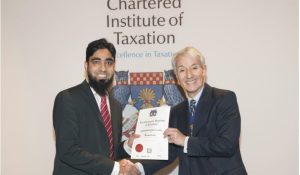Investment Companies and Property Income
Investment Companies and Property Income
Property income: what has changed?
Changes are gradually being introduced that affect the way that landlords – particularly small buy-to-let investors – are taxed. Where landlords could once offset various types of spending against their rental income – for example, the mortgage interest element – the amount that can be deducted will be capped over the next few years, meaning that by 2020, 100 of financing costs will be given as a basic tax reduction. This, along with the alteration to the ‘wear and tear’ allowance, has caused many landlords to express concerns about the viability of running a property business as a sole trader.What are the options?
In response to the changes, many landlords took hasty steps to set up a limited company to manage their rental income. Indeed, according to Countrywide, a fifth of rental properties are now owned by a corporation – the highest number since 2010 (which is when records began).
On the surface, it’s easy to see why this manoeuvre is attractive: the recent reforms are aimed at landlords paying tax on an individual basis, meaning that those operating via a company are exempt. Property income generated through a company is subject to the corporation tax rate; which, at 19 , is a much more attractive figure than the 40+ levied on higher-rate taxpayers. Mortgage interest is also considered a business expense and can be deducted from the company’s property income tax bill.
The process of setting up a company is not easy, however, and not every landlord is eligible to do so. Moreover, the complex rules governing property held within a company mean that different forms of tax are payable and fewer reliefs are available, which could lead to corporate landlords paying more tax – not less.
How can we help?
Whilst the new charges can be avoided by setting up a company, there are various implications and potential pitfalls. Fortunately, IBISS & Co are experts in all forms of property taxation and accountancy; and, with expert accountants and certified tax specialists on hand to provide recommendations, we can devise a strategy that will best suit you and your business interests – and avoid the kinds of mistakes that could lead to unexpected tax charges.
Trading vs. investment companies: flagging up the risks
When it comes to property income, many landlords are unaware of the distinction between a trading company and an investment company – until it’s too late. Legislation stipulates that a company is a close investment holding company (CIHC) unless it exists for the purpose of:
- Operating commercially as a business (i.e., carrying out a trade).
- Making investments in land or estates.
- Letting out properties or land. The exceptions to this are if the property will be let to individuals that are closely connected with the company (such as an employee or a relative of an employee).
As such, whilst a company that was formed with the purpose of letting a property to an unconnected party would not be classed as a CIHC, it is common for landlords to hold properties within a company that are then let to a separate trading company also owned by themselves – and this would mean falling within the CIHC rules, which could have major implications for property income businesses.
Other considerations:
- Investment companies are presently subject to taxation at 19 and double taxation on disposal (corporation tax on gains and dividends tax on withdrawals from the company).
- If you own the relevant properties prior to forming the company, you will need to ‘sell’ these to the new corporation – potentially incurring capital gains charges.
- CGT reliefs (gift relief, roll-over relief, and entrepreneur relief) and business property relief (BPR) reliefs for inheritance tax are not available.
- Finally, there are additional expenses, accountancy regulations and logistical pressures associated with running a company – not least the paperwork, which is more numerous and complex.
This is not to say that setting up a company is not the correct move for certain individuals; indeed, it may be a valuable move as part of a longer-term tax strategy. However, the complexities surrounding investment and trading companies means that it is crucial to seek expert advice before committing to a course of action.
When it comes to property income, there is no ‘one size fits all’ approach. At IBISS & Co, we treat every client with individual care and attention, utilising our accountancy expertise to formulate a bespoke approach that will mitigate tax liabilities and maximise profits. Contact an IBISS & Co certified tax specialist today to learn more about how we can help your business succeed.
Next Step:
Please contact us if you need further advice, have any questions about our services, or would like a free consultation or a fixed quote.
Want further accounting advice? Get in touch with your local IBISS & Co branch
Contact Us Online
We Help Our Clients
- HMRC Self employed registration
- Self Assessment submission
- Unlimited accountancy support
- Dedicated client management
- VAT registration and filing - additional cost
- Online accounting software - additional cost
- Free Open Banking links - additional cost
- List Easy bank reconciliation - additional cost
- Receipt scanning app - additional cost
- Business Mileage app - additional cost
- Discounts on Mortgage services and Business Insurance
*from £30 +VAT (Per Month)
- All your accountancy questions answered
- Statutory Year End accounts
- Corporation Tax filing
- Phone and email support
- Company formation, registration for company taxes & Registered Office address
- Timely Company Filings
- Tax Planning
- Simple online accounting software
- Free Open Banking links
- Easy bank reconciliation
- Receipt scanning app
- Business Mileage app
- Discounts on Mortgage services and Business Insurance
*from £70 +VAT (Per Month)
- Self Assessment
- MTD VAT Submissions
- Annual Accountancy Health check
- Our speediest support & service
- Unlimited phone and email support
- All your accountancy questions answered
- Registration for company taxes & Registered Office address
- Timely Company Filings
- Detailed Tax Planning
- Pro online accountancy software
- Free Open Banking links
- Easy bank reconciliation
- Receipt scanning app
- Business Mileage app
- Discounts on Mortgage services and Business Insurance
- References
*from £150 +VAT (Per Month)
- Income Tax Planning
- Overseas Workday relief
- Effective Tax planning for property landlords
- Capital Gain Tax Mitigation
- Inheritance tax and succession planning
- Property Incorporation
- Let property campaign filings
- Worldwide disclosure facility
- Non resident Non domicile taxation
- HMRC enquiries and Tax Investigations
- Super deduction tax planning -Budget 2021
- Family owned business tax saving techniques
- VAT on property
- Stamp duty land taxes
- Corporate structure planning including Groups
*from £150 +VAT (Per Hour)
Reviews






















